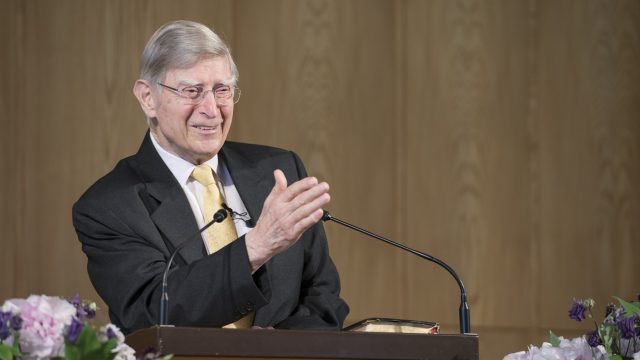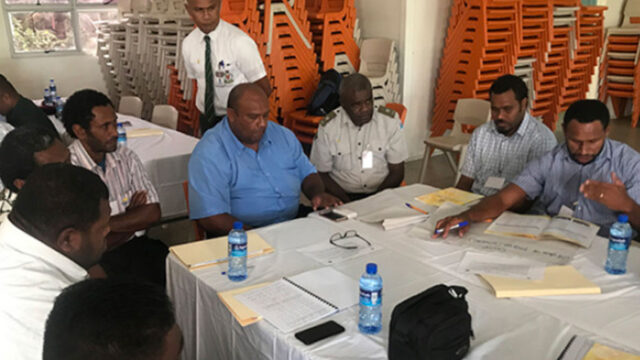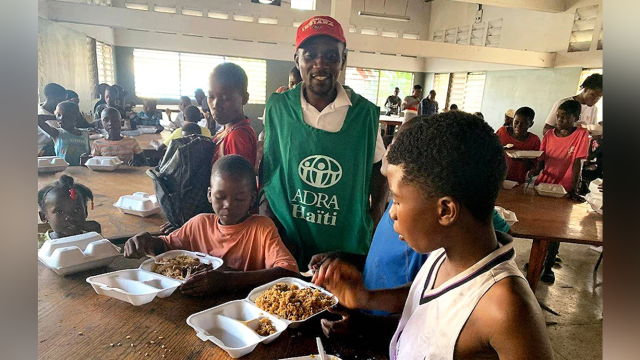The agency reaffirms its “unwavering commitment to education,” its leaders said.

The Adventist Development and Relief Agency (ADRA) reaffirmed its unwavering commitment to education in observance of Martin Luther King, Jr., Day on January 20. This U.S. federal holiday, observed on the third Monday in January, honors King’s birthday, life, legacy, and profound contributions to civil rights and social justice.
ADRA reflected on King’s vision for empowering children through the gift of education. For more than 40 years ADRA has witnessed firsthand how its global education programs have opened new opportunities, transformed lives, and brightened the futures of families and entire communities. Through these initiatives, ADRA provides young people and adults—regardless of their background—with the tools to break the cycle of poverty, advocate for themselves, and dream of a better tomorrow.
These efforts closely align with King’s message in his 1947 article “The Purpose of Education” for The Maroon Tiger at Morehouse College. “Education must enable one to sift and weigh evidence, to discern the true from the false, the real from the unreal, and the facts from the fiction,” King wrote. “The function of education, therefore, is to teach one to think intensively and to think critically.”
ADRA’s global education efforts exemplify King’s ideals, ensuring children and communities worldwide have the resources they need to succeed.
“At ADRA we witness the profound impact of learning every day. We are committed to dismantling the barriers that prevent access to education because we know that when people have the opportunity to learn, they gain the power to change their futures—and the futures of those around them,” said Sonya Funna Evelyn, ADRA International’s vice president of sustainable development. “Nevertheless, significant challenges remain. More than 260 million children worldwide are not in school, and more than 770 million adults—most of them women—cannot read. As we reflect on King’s legacy and his vision of true education, ADRA remains steadfast in its mission to ensure learning opportunities are accessible to vulnerable communities around the globe.”
Breaking Barriers for Stateless Children
ADRA has been actively advocating for the rights of stateless children worldwide and working to implement education programs that give them a chance to build brighter futures.
According to the United Nations there are more than 4.4 million stateless people globally, with one-third of them being children. Stateless kids often come from unrecognized tribes or are descendants of undocumented immigrants. Born without a country to call home, they lack essential identification documents, such as birth certificates or passports, rendering them ineligible for fundamental services, including education.
In Thailand, where stateless children make up the largest population in Southeast Asia, ADRA is reducing statelessness by raising awareness in local communities and encouraging country policies that allow children to enroll in school and begin their journey toward citizenship.
Through partnerships with the United Nations, the Global Regional Network on Statelessness, and other international organizations, ADRA is strengthening alliances with governments to find long-term solutions that eliminate laws and practices that deny children nationality, ensuring stateless children can learn, grow, and thrive.
“Together we can all make a difference if we take a stand in solidarity, showing compassion, tolerance, acceptance, and a commitment to breaking the cycle of marginalization and exclusion,” said Akintayo Odeyemi, director of ADRA International’s United Nations Liaison Office.
Agency leaders said that ADRA’s dedication to breaking down barriers to education, ensuring that every child has the opportunity to learn and thrive. This “mirrors King’s vision for equality in education for all and pays tribute to his enduring legacy,” they said.
The original version of this story was posted by the Adventist Development and Relief Agency.












